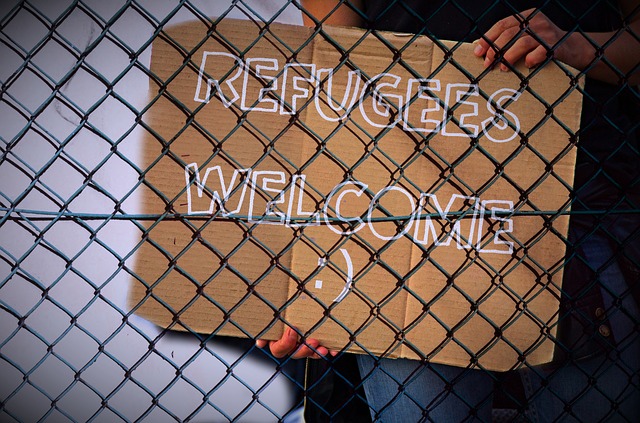By Kees Biekart | EADI/ISS Blog Series
The next EADI Development Studies conference is about “Solidarity, Peace and Social Justice”. But what does solidarity actually mean in relation to development studies?
Let’s assume development essentially comes down to a process of social change. Or better, a wide range of connected processes of social change. We can think of female textile workers in Bangladesh trying to unionise, even though the employers try to prevent this. Or we can think of measures to deal with massive flooding in the Bangladeshi deltas, washing away many houses of these textile workers’ families. Or we can think of decisions by European teenagers willing to pay extra for fair trade labels in their fashion clothes made in Bangladesh. All these processes are in some way connected around the idea of solidarity. Social change cannot be generated by ourselves only, even though we can make individual choices. This is probably the core idea of solidarity.
There are at least two essential building blocks of solidarity: action and reciprocity. Any activist struggle will require some sort of solidarity in order to be able to realize social change at a larger scale. Greta Thunberg started her protest in August 2018 at the age of 15 just by herself, quitting her classes every Friday and sitting in front of the Swedish parliament, handing out leaflets about climate breakdown. In the following months hundred thousand teenagers all over the world joined her example and went out during school time to protest against the destruction of the planet; by May 2019 the crowds had grown to over a million.
According to Amnesty International Secretary General Kumi Naidoo (also former director of Greenpeace), Thunberg’s “Fridays for Future” climate campaign was more effective in generating global awareness about climate change than the combined efforts of the major international environmental NGOs. It illustrates again that every big struggle often starts small with the ripple effect of an activist initiative making sense to many more: the basis of any solidarity campaign.
Inequality undermines solidarity
The other building block of solidarity is reciprocity: it represents more than just a voluntary gesture, as it is a commitment that will often imply personal sacrifices. This commitment may be ideologically driven, or religiously, but is born out of the conviction that there is mutuality in a supportive relationship. Solidarity with Syrian refugees coming to Europe implies that we also share some of our welfare and freedom. Again, born out of a basic human value that we help those who have less, as long as we can afford it. This reciprocity distinguishes solidarity from charitable initiatives. And it is not without implications: the bond of solidarity also has consequences for how mutual support is realized. Of course, not everyone is willing to give up welfare or to offer shelter. As Juergen Wiemann argued in his recent EADI-ISS blog: “Solidarity is waning with rising levels of immigration to Europe and the US, provoking resentment by those who already feel left behind”. Inequality is therefore definitely an undermining factor for solidarity.
Following Hannah Ahrendt’s view on compassion, solidarity implies linking action and reciprocity, as it is based on connecting existing struggles. After all, social struggles are mutually dependent the old mantra ‘your struggle is our struggle’. It is a matter of locating and analysing activist struggles as part of broader efforts and bigger visions for change. This can be extrapolated also to struggles for changing development studies to embrace a more global perspective. The wicked problems to be solved are not necessarily originating in the Global South, as most of its causes are located in the Global North. Despite arguments by authoritarian populist leaders such as Trump and Netanyahu and their supporters for the opposite, the construction of walls between North and South will only aggravate international inequality and will eventually be felt particularly in the North.
Rethinking mainstream Development Studies
So how to deal with solidarity as development studies scholars? Well, it implies that we have to really rethink development studies in its mainstream fashion. For example, by exploring development research topics to be researched explicitly in the Global North, linked to migration policies, poverty and inequality, climate change, neo-colonialism, etc., analysed from a global solidarity perspective. It may require new ways to organise research programmes by providing leading roles (and funding) to Southern scholars. It may even imply phasing out development studies programmes in the Global North as we currently practise it, by shifting their hubs to the Global South. Development studies often remains a Northern-dominated field of studies in which solidarity often is disregarded as a concept revealing activist agendas, rather than a key agenda for fundamental change. After all, isn’t that what we aspire when focusing on ‘development’?
Therefore, the next EADI conference will, for a change, explore examples and experiences of how solidarity efforts have tried to make meaningful changes in a wide variety of settings. We encourage panels on how to integrate solidarity into new perspectives on development studies. And how to address unequal power relations in our curricula and programmes by highlighting the urgency of pursuing change, facilitated by reciprocal relationships and interdependent struggles. Maybe we should talk less about development and more about how to contribute to the necessary changes required.
This article is part of a series launched by EADI (European Association of Development Research and Training Institutes) and the Institute of Social Studies (ISS) in preparation for the 2020 EADI/ISS General Conference “Solidarity, Peace and Social Justice”. It was also published on the ISS Blog.
Kees Biekart is Associate Professor in Political Sociology at the International Institute of Social Studies of Erasmus University Rotterdam
Image by kalhh on Pixabay

